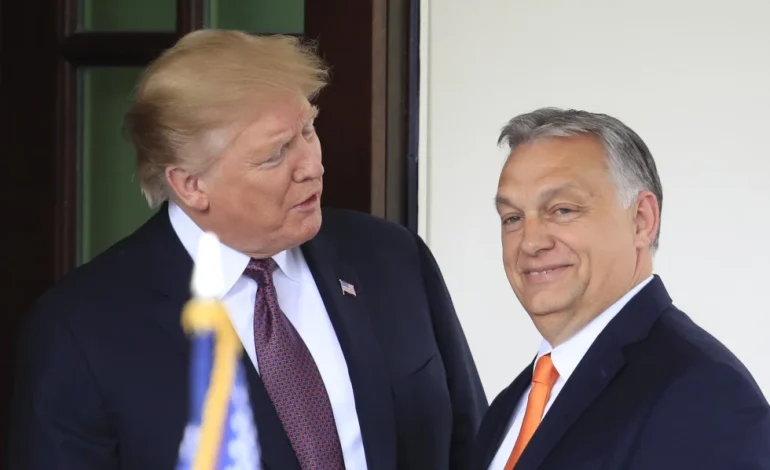Hungary’s Prime Minister Viktor Orbán says he’ll follow President Donald Trump’s lead and label “Antifa” a terrorist organization — even as both countries grapple with the fact that Antifa is more of an ideology than a membership-based group.
Speaking on state radio, Orbán said he was “pleased” with Trump’s move to designate Antifa a “major terrorist organization” in the US and that Hungary would copy it.
“Antifa is a terrorist organization,” he declared. “The time has also come in Hungary for organizations like Antifa to be classified as terrorist organizations, following the American example.”
It’s a revealing bit of political mirroring between two leaders who admire each other’s playbooks. Orbán, a self-styled champion of “illiberal democracy,” has been lionized by MAGA conservatives, and Trump has praised him as a “very strong” leader. This time, the direction of travel runs both ways: Trump’s declaration in London — posted to Truth Social and describing Antifa as a “sick, dangerous, radical left disaster” — drew a swift nod from Budapest.
There’s a legal wrinkle in Washington: Antifa isn’t a formal organization, and US law doesn’t provide a domestic “terrorist organization” list akin to the State Department’s foreign roster. Former FBI Director Christopher Wray has called Antifa a decentralized “ideology.” The Congressional Research Service says the label sweeps in a range of radical views, sometimes overlapping with anarchism, socialism, or communism. In practice, Trump’s post by itself changes nothing — though his White House is studying ways to put “pen to paper,” which could shift federal priorities, from surveillance and charging decisions to sentencing enhancements in individual cases.
Conservatives are pressing for action after the assassination of activist Charlie Kirk, which authorities say may have involved antifascist-tinged messaging from the suspect. Former acting DHS Secretary Chad Wolf says a crackdown is “long overdue,” arguing federal agencies can reorient without waiting for Congress. Libertarian and civil-liberties voices warn the First Amendment still protects nonviolent beliefs: “There is no Antifa organization,” Rep. Dan Goldman countered, calling the move a pretext to target political opponents. The ACLU says Trump is jeopardizing free speech by aiming at “real or perceived” adversaries.
Orbán’s domestic rationale rests on a flashpoint he’s long used to rally supporters: a 2023 street assault tied to counter-protests around Budapest’s far-right “Day of Honor” commemoration, where Italian activist Ilaria Salis was arrested. She later won a seat in the European Parliament, gaining legal immunity — a development Orbán derided as proof that “Antifa” thugs can become MEPs and “lecture Hungary on the rule of law.” EU lawmakers have criticized the “Day of Honor” as a “shameful display” of Nazi symbols, underscoring how culture-war stages in Hungary double as geopolitical messaging.
In truth, Antifa has no real footprint in Hungary, and its US analogue is a loose current more than a club with rosters. That fuzziness hasn’t stopped either leader from elevating it into a political foil. Orbán has built years of campaigns around shadowy enemies — most famously George Soros — and Trump has floated hitting Soros with RICO over alleged support for “violent protests.”
Whether these moves translate into concrete policy is the open question. In the United States, any real attempt to “designate” a domestic ideology will run into constitutional guardrails. In Hungary, where Orbán has spent 15 years centralizing power and rewriting rules, the label alone could be enough to widen police latitude against government critics. Either way, the point may be less about legal mechanics and more about drawing a bright, polarizing line — and daring opponents to cross it.










The latest news in your social feeds
Subscribe to our social media platforms to stay tuned